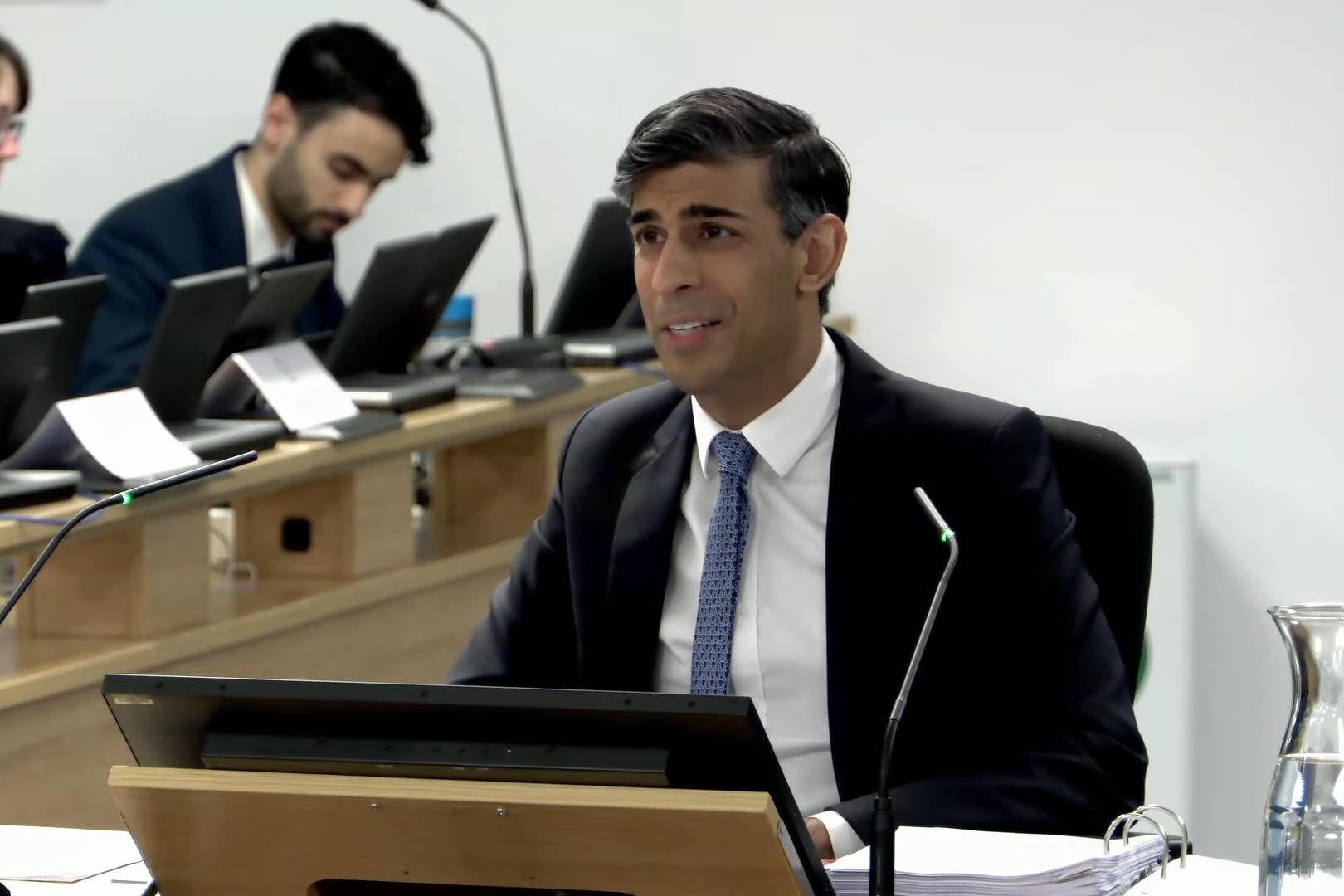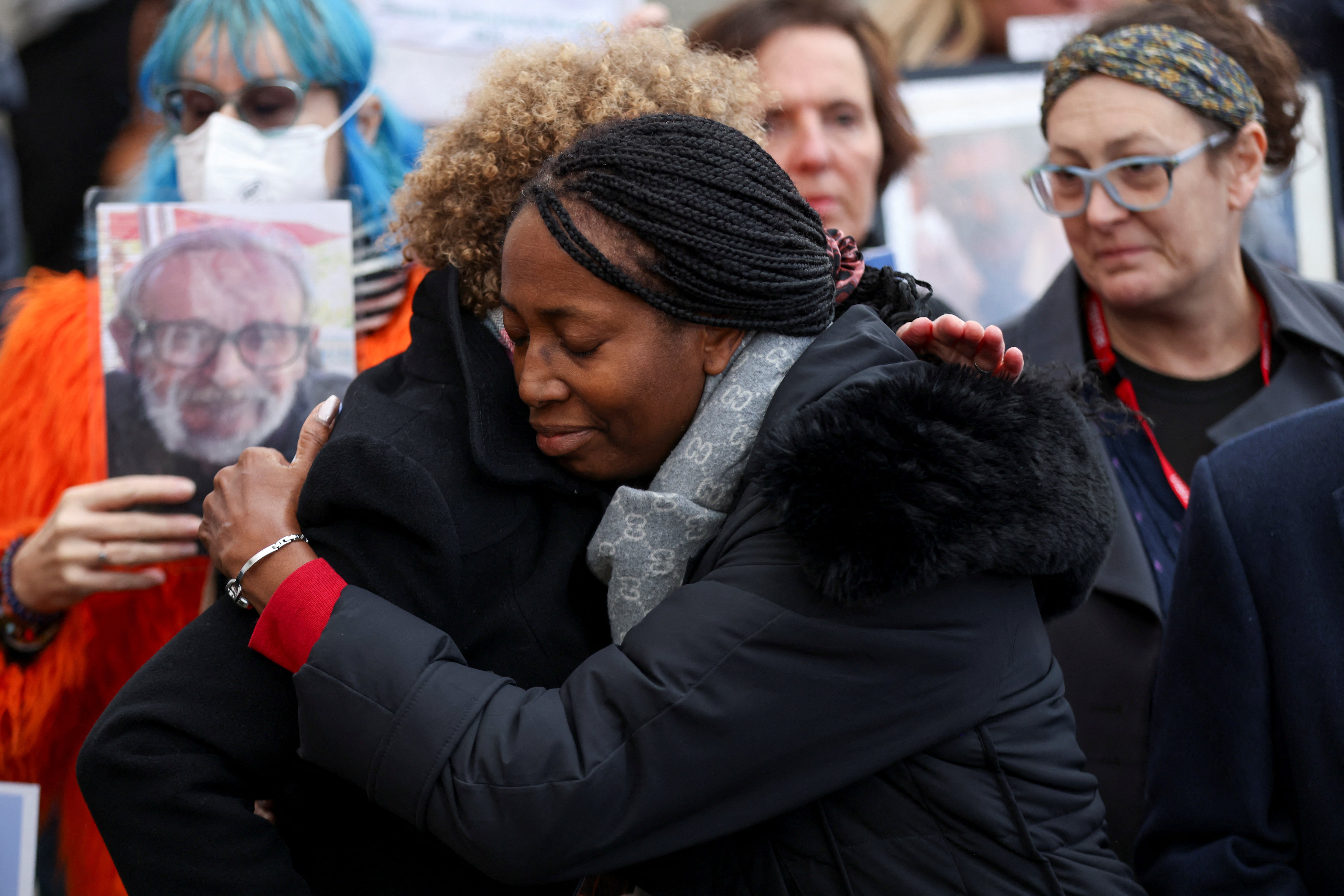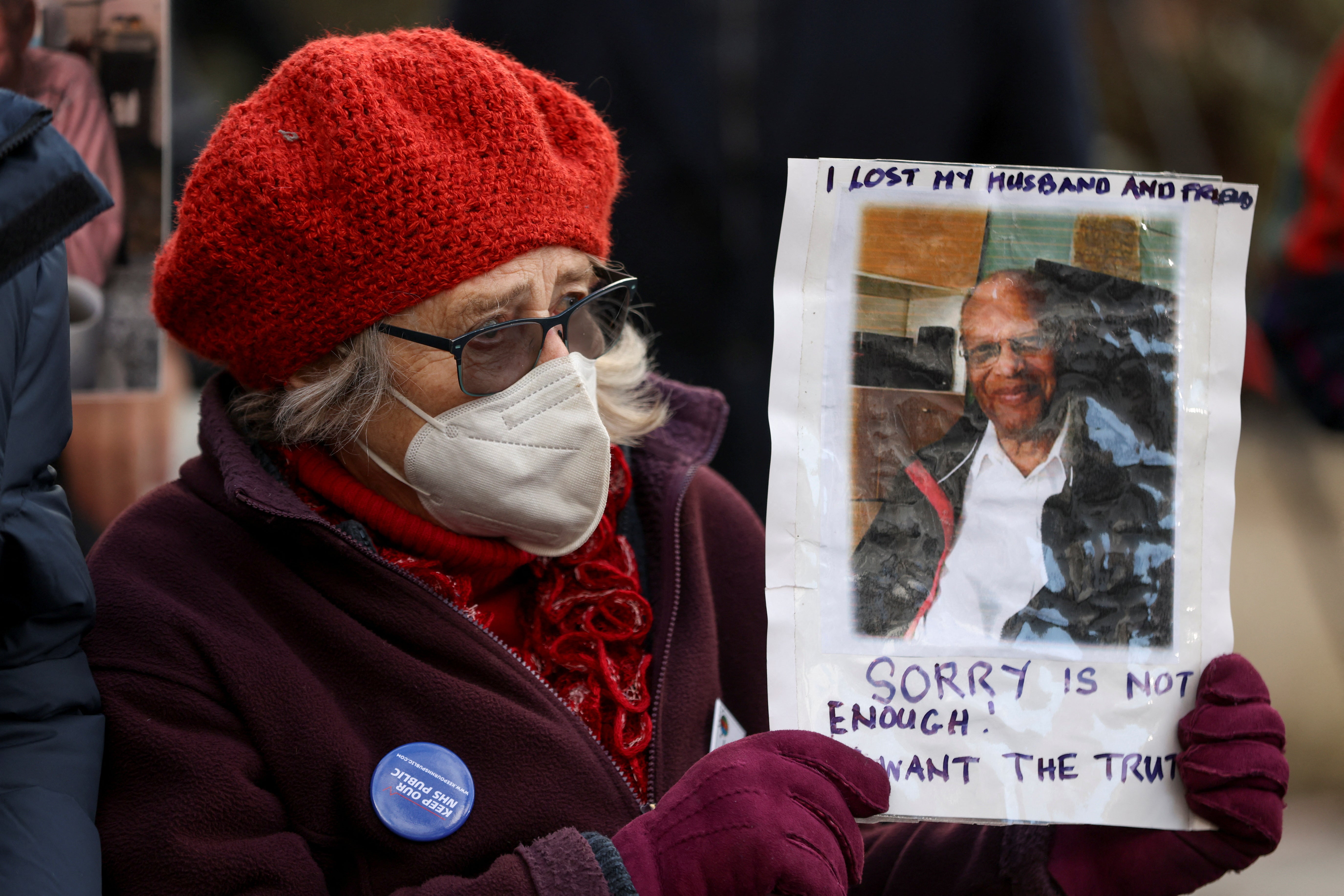Rishi Sunak defends Eat Out to Help Out scheme under intense pressure at Covid inquiry
The prime minister used an eight-hour evidence session to brush off accusations that he launched the controversial hospitality-boosting scheme without proper scientific advice
Your support helps us to tell the story
From reproductive rights to climate change to Big Tech, The Independent is on the ground when the story is developing. Whether it's investigating the financials of Elon Musk's pro-Trump PAC or producing our latest documentary, 'The A Word', which shines a light on the American women fighting for reproductive rights, we know how important it is to parse out the facts from the messaging.
At such a critical moment in US history, we need reporters on the ground. Your donation allows us to keep sending journalists to speak to both sides of the story.
The Independent is trusted by Americans across the entire political spectrum. And unlike many other quality news outlets, we choose not to lock Americans out of our reporting and analysis with paywalls. We believe quality journalism should be available to everyone, paid for by those who can afford it.
Your support makes all the difference.Rishi Sunak mounted a fierce defence of his controversial Eat Out to Help Out scheme and said it was unfair to call the Treasury a “pro-death squad” during the pandemic.
The prime minister used an eight-hour evidence session to brush off accusations that he launched the controversial scheme without proper scientific advice. He praised the “incredibly hardworking people” working in the Treasury while he was chancellor, hitting back at Boris Johnson’s suggestion they were happy to oversee an increase in deaths in order to lift lockdown restrictions.
The now-PM also said he “consistently” warned his predecessor Mr Johnson about the wider impacts of lockdown, blaming the “economic scarring” it left for the nation’s parlous finances today.
Mr Sunak opened his evidence hearing with an apology to families bereaved during the pandemic. He proceeded to make the extraordinary claim that he had not been able to hand over his WhatsApp messages from the pandemic because he “had changed phones multiple times and the messages did not come across”.

But despite coming under intense pressure from inquiry lead counsel Hugo Keith KC, Mr Sunak came off largely unscathed from the hearing. He also pointedly refused to criticise his former boss.
As the PM’s flagship Rwanda policy was under intense scrutiny, the Covid inquiry heard:
- Mr Sunak denied having called parents who cannot afford food for their children “freeloaders”
- The former chancellor said it was unfair to describe the Treasury during the pandemic as the “pro-death squad”
- He fiercely defended the controversial Eat Out to Help Out policy, insisting it was the “right thing to do”
- Mr Sunak blamed “economic scarring” from lockdown for the “historically high” tax burden facing households today
- And former PM Mr Johnson became “agitated” that he did not have a plan for easing lockdown, believing the “sooner we get [the economy] open the better”
Mr Sunak said on Monday morning he was “deeply sorry to all of those who lost loved ones”.
“It’s important that we learn the lessons so that we can be better prepared in the future,” Mr Sunak said. He promised to give evidence “in the spirit of constructive candour”.
After Mr Sunak was asked about his WhatsApp messages, a disappointed Mr Keith pressed the PM on whether he was warned by officials that he would need to keep access to the messages for use in a future inquiry.
But the PM insisted he is “not a prolific user of WhatsApp” and “anything of significance”.
The PM went on to say it was unfair to describe the Treasury under his leadership during the pandemic as a "pro-death squad".
The former chancellor was asked by Mr Keith whether he was aware of the description which Sir Patrick Vallance recalled Mr Johnson used to refer to the department being opposed to the strongest public health interventions.

The prime minister said: “I wasn’t and I do not think it is a fair characterisation on the incredibly hardworking people that I was lucky to be supported by at the Treasury.”
He was quizzed by Mr Keith on the litany of claims heard by the inquiry so far that Mr Johnson himself presided over a toxic and chaotic working environment in No 10.
Despite tensions between the pair, Mr Sunak declined to criticise his predecessor and said he was not aware of the concerns people had raised.
Mr Keith said: “The administration was described privately as brutal and useless, or criminally incompetent or operationally chaotic? Was any of that known to you?”
“I don’t think any of those comments were shared with me at the time,” Mr Sunak said.
In a revealing slip of the tongue, Mr Sunak accepted at one point that the tax burden on households was “historically high”, before quickly correcting himself to say taxes are “higher than I would like”.
The PM blamed “economic scarring” on the country’s borrowing during the pandemic.

Mr Sunak said: “The impact of having to pay it back only comes well after the fact when everyone can forget why it was necessary.
“And now everyone is grappling with the consequences, I am grappling with the consequences of that, as we have a historically high … tax burden that … is higher than I would like.
“That is a direct consequence of the support that was provided during the pandemic.”
Mr Keith told him off for using the inquiry to excuse his government’s tax rises, adding: “Please do not go on to the issue of tax burdens.”
Mr Sunak went on to claim he had “consistently” warned Mr Johnson about the wider impacts of lockdowns.
The prime minister said he wanted Mr Johnson to “consider the totality” of the effects of lockdown.
Mr Sunak said: “One of the consistent arguments I made from the beginning was making sure we collectively and the prime minister considered the totality of the impacts of the decisions that we were making.”
The inquiry was then shown an email from Elizabeth Perelman, Mr Sunak’s then-principal private secretary, which revealed that in April the former PM was agitated about not having a plan to lift lockdown and said “the sooner we get this open the better”.
It showed that Mr Johnson thought Britain had “overdone” lockdown, highlighting that other countries had not closed their construction sectors, for example.
Asked about Eat Out to Help Out, for which he has drawn criticism after Sir Chris Whitty and Sir Patrick Vallance were not asked about the scheme before it was announced, he said it was “safe” and “the right thing to do” to protect jobs.
Mr Sunak’s evidence concludes a slew of bumper appearances from the top scientific advisers and ministers in charge during the pandemic.

Join our commenting forum
Join thought-provoking conversations, follow other Independent readers and see their replies
Comments